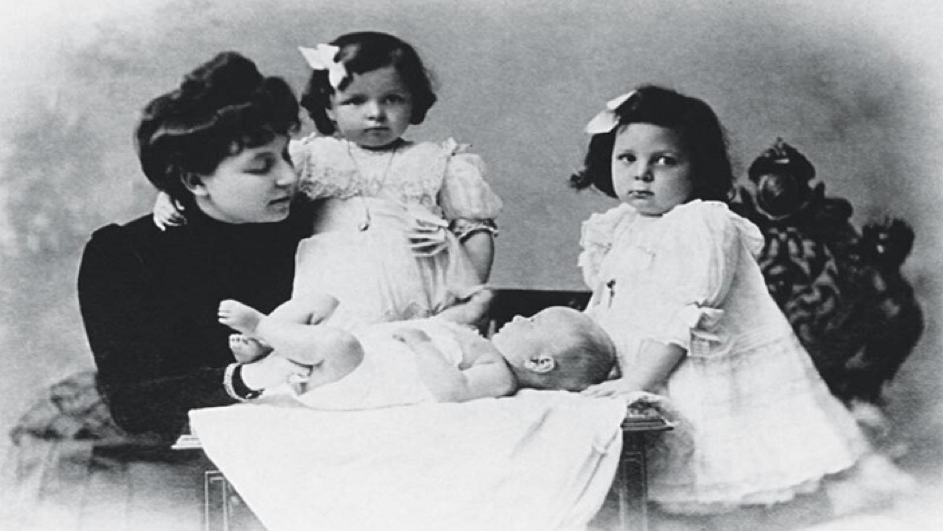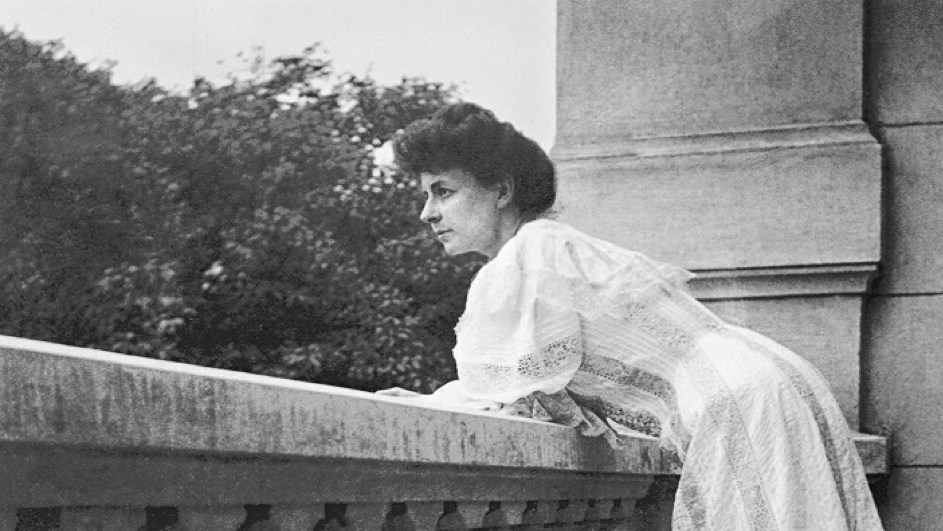By Ilektra Takuridu.
Penelope Delta was an author whose books have influenced generations of Greeks. Her work is particularly significant as she is the first female children’s book author in Greece. Penelopes books were very popular and widely read, as well as her children’s books her Historical novels were extremely influential on the Greek people’s views of national identity and culture.
Early Life
Penelope Delta was born in Alexandria, Egypt, to Virginia Choremi and Emmanuel Benakis, a prosperous cotton merchant. She had five siblings, whom she would later use as inspiration for characters in her books. In 1882, the Benaki family relocated to Athens.

Marriage
Whilst living in Athens, Penelope married Stephanos Delta, a wealthy Phanariote merchant, with whom she had three children, Sophia Mavrogordatou, Virginia Zanna, and Alexandra Papadopoulou. In 1905, they returned to Alexandria, where she met Ion Dragoumi, the Vice-Consul of Greece in Alexandria at the time. Dragoumi, who like Penelope Delta, was an author. Their books shared the same themes of the Macedonian Struggle, and their own accounts of it. The pair was briefly romantically involved but out of respect for Delta and her children, Dragoumi decided not to pursue the romance and separated from her. Even so, they continued to correspond passionately, until 1912, when Dragoumi started a serious relationship with the famous stage actress Marika Kotopouli. Heartbroken and suffering from depression Penelope twice attempted suicide. Despite the relationship not working out, in 1920 Dragoumi died, and following his death Penelope would only be seen wearing black just as widows do.
Writing career
In 1906 , Delta relocated to Frankfurt, Germany, and her first novel, Gia tin Patrida (For the Sake of the Fatherland), was published in 1909. Delta collaborated with historian Gustave Schlumberger, a renowned expert on Byzantine Empire history to make her novel more accurate. Her novel The Life of Christ was published in 1925, the same year she was diagnosed with Polio. In 1927 she began writing the trilogy Romiopoules (Young Greek Girls), an autobiography that she did not complete until 1939. Part one of the trilogy, To Xypnima (The Awakening), was set in Anthens and covers the early years of her life, from 1895 to 1907, while the second part, H Lavra (The Heat is between 1907 and 1909 and the final section, To Souroupo (The Dusk), spans the years 1914 to 1920.

Whilst writing the Trilogy, she also worked on other books. Three memorable novels she wrote in this period were (Crazy Anthony; 1932), Mangas (1935), and Ta Mystika tou Valtou (The Secrets of the Swamp; 1937). Trelantonis was written about and inspired by her brother Antonis and his cheeky behavior as a child and antics.
Death and Legacy
Penelope Delta died on May 2, 1941, she decided to take her life by drinking poison. As per her request she was buried in the garden of the stately Delta mansion in Kifissia. The funeral was officiated by Chrysanthos, the Archbishop of Athens at the time. The word σιώπη (“silence”) was etched on her grave in her house’s backyard. Delta’s daughter, Alexandra Papadopoulou, donated the house to the Benaki Museum in 1977, and it has since stored the museum’s significant archives. Benaki Museum is still one of Greece most famous museums with many exponents of Greek culture and history. Penelope Delta left behind books that were adored by children and novels that were admired by proud Greeks.
